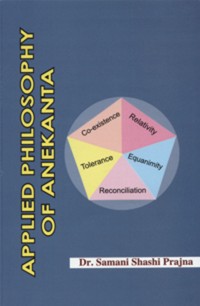This exhaustive philosophy is reflected not only in philosophical deliberations or religious castism; but also in many facets of our social life. In our judicial system, in which lies the core of human dignity in society, the greatest contribution to the cause of justice is the concept of natural justice, which is based on two fundamental principles: (i) No one would be his own judge for his own cause, and that a judgement should be unbiased and impartial, (ii) Both sides of the case should be heard and that no one should be condemned unheard. On close analysis, both the principles implicitly refer to the attitude of anekānta. Further, if he hears only one party and leaves the other party unheard, his approach would be ekāntika. Again thus, anekānta is the essence of both the principles. A person accused of murder could be hanged, or given life sentence and could also be acquitted, this underlines anekāntika approach.[1]
Applied Philosophy Of Anekanta: 5.19 Judicial System and Anekānta
Author:
 Dr. Samani Shashi Pragya
Dr. Samani Shashi Pragya
 Dr. Samani Shashi Pragya
Dr. Samani Shashi Pragya
Published: 24.06.2014
Sources
Title: Applied Philosophy Of Anekanta
Edition: 2012
ISBN: 978-81910633-8-7
Publisher: JVBI Ladnun, India
HN4U Online Edition: 2014.02
Edition: 2012
ISBN: 978-81910633-8-7
Publisher: JVBI Ladnun, India
HN4U Online Edition: 2014.02


Page glossary
Some texts contain footnotes and glossary entries. To distinguish between them, the links have different colors.
Page statistics
This page has been viewed 874 times.